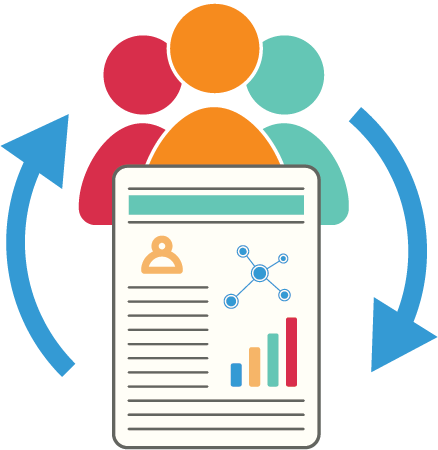
The Rapid Community Report (RCR) Series shares findings and insights in the quickly evolving, interdisciplinary fields of learning sciences and technology. Researchers ordinarily share such information in journal publications, but these tend to appear late in a project’s lifecycle. Conferences (such as ICLS and CSCL) allow timely sharing but rarely communicate to an audience beyond the limited number of attendees. The RCR series is meant to be complementary to these existing publication venues and to allow rapid, early dissemination of research-based ideas.
To submit a Rapid Community Report, please see the instructions for authors.
A Conjecture Mapping Primer for Computer Scientists: Merging Learning Theories and Technical Research
Michael Chang, Rachel Dickler
Using Technology to Foster Equitable Access and Diverse Learning Communities
René F. Kizilcec, Jon Mason, Kathryn S. McCarthy, Maria Mercedes T. Rodrigo, Carolyn Penstein
Engaging Youth in Envisioning Artificial Intelligence in Classrooms: Lessons Learned
Michael Alan Chang, Thomas M. Philip, Arturo Cortez, Ashieda McKoy, Tamara Sumner, William R.
Stealth Assessment
Valerie J. Shute, Seyedahmad Rahimi
Classroom (co)Orchestration
Emily Schindler, Pooja Saxena
Perceptual Learning in Math: Implications for Educational Research, Practice, and Technology
Avery H. Closser, Jenny Yun-Chen Chan, Hannah Smith, Erin R. Ottmar
Advancing Equitable Education with Intersectional Approaches in Queer Theory
Addie Shrodes, Dylan Paré
Prefiguration as Learning
Joe Curnow, Suraj Uttamchandani
Teacher Orchestration Load: What Is It and How Can We Lower the Burden?
Ishari Amarasinghe, Anouschka van Leeuwen, Yannis Dimitriadis, Alejandra Martínez-Monés, Davinia Hernández-Leo, H. Ulrich Hoppe,
Supporting STEM Identity Development through Asset-Based Positioning
Shakhnoza Kayumova, Anthony F. Arrigo, Akira Harper, Eleanor Richard, Heather Welty
Gameful Learning: Leveraging the Learning Sciences to Improve the “Game of Learning”
Barry Fishman, Caitlin Hayward
Designing sustained game-based learning environments to engage undergraduate students in history
Zach Ryan, Christina Stiso, Joshua Danish, Eric Robinson
Social regulation of learning as a base for successful collaboration
Dalila Dragnić-Cindrić, Jeffrey A. Greene
Beyond Transcripts and GPAs: An NSF Workshop on Digital Micro-credentials for Use in College Admissions
Barry Fishman, Stephanie Teasley, Steven Cederquist
Primer: Remote Labs
Jeremy Roschelle, Kemi Jona, Patricia Schank
Primer: Design-Based Implementation Research
Wendy Martin, Barry Fishman, Britte Cheng, William Penuel
Robots, Young Children, & Alternative Input Methods
Yanghee Kim, Lixiao Huang
Assessing Collaborative Processes via Instrumented Working Spaces
Yoav Bergner, Anne-Laure Fayard
Embodied Design for Mathematical Imagination and Cognition
Mitchell J. Nathan, Caro Williams-Pierce, Candace Walkington, Dor Abrahamson, Erin Ottmar, Hortensia Soto, Martha
How Might Digital Micro-Credentials Help Youth Aspiring to Go to College?
Jaime Gutierrez, Wendy Martin
Reflections on redesigning a museum-based maker program for clubs in autism inclusion middle schools
Wendy Martin, Regan Vidiksis, Kristie Koenig
How a New Focus for Learning Analytics Could Transform the Relationship Between Learning and Employment
Stephanie D. Teasley, Henry Kelly
Weaving the Fabric of Adaptive STEM Learning Environments Across Domains and Settings
Roy Pea, Shuchi Grover, Bryan Brown
Distributed Collaboration in STEM-Rich Project-Based Learning
Eric Hamilton, Danielle Espino
